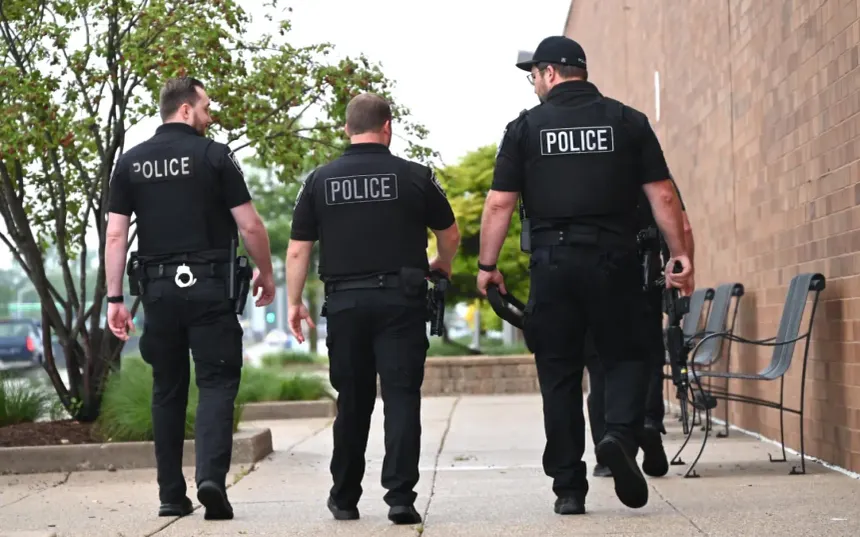Why Police Reform Matters
Police reform is a topic that sparks strong emotions worldwide. With rising concerns about police brutality, racial profiling, and lack of accountability, governments and activists are pushing for significant changes. The goal is simple: build a fairer, more transparent, and community-friendly policing system.

Key Issues in Policing Today
Before diving into potential reforms, it’s crucial to understand the key challenges affecting community relations:
- Excessive Use of Force – Many cases of police brutality have led to public outcry.
- Racial Profiling – Communities of color often report unfair treatment.
- Lack of Accountability – Officers accused of misconduct rarely face severe consequences.
- Over-Policing – Some areas have a strong presence, creating fear rather than safety.
- Underfunded Social Services – Many issues could be solved with mental health support rather than police intervention.
1. Stricter Use-of-Force Policies
One of the biggest issues in policing is the excessive use of force. Many activists argue that police should only use force when absolutely necessary.
Potential Reforms:
- Clearer policies on when force is justified.
- Mandatory de-escalation techniques before using weapons.
- National database tracking officers with excessive force complaints.
- Body cameras to ensure transparency in police encounters.
2. Community Policing Programs
To improve relationships, many cities are adopting community policing strategies. This means officers work closely with neighborhoods instead of just responding to crimes.
Benefits of Community Policing:
- Increases trust between police and residents.
- Encourages officers to understand local concerns.
- Reduces crime through cooperation rather than intimidation.

3. Independent Oversight & Accountability
Many people lose faith in the justice system when officers accused of misconduct go unpunished. Independent oversight can help ensure fair investigations.
Reforms That Could Help:
- Civilian review boards to handle complaints against officers.
- Whistleblower protections for officers reporting misconduct.
- National registry for officers dismissed due to misconduct.
4. Improved Police Training
Training is a key factor in how officers handle situations. Many critics argue that police receive too little training on de-escalation and racial sensitivity.
Recommended Training Improvements:
- More hours focused on non-violent conflict resolution.
- Regular mental health and bias awareness training.
- Crisis intervention training to help officers handle people in distress.
5. Demilitarization of Police Forces
In recent years, many departments have received military-grade weapons and vehicles. This often escalates tensions rather than reducing crime.
Possible Solutions:
- Limiting the use of military-style gear for routine policing.
- Restricting police access to automatic weapons.
- Encouraging negotiation and peaceful conflict resolution.
6. Alternative Emergency Response Teams
Many 911 calls involve mental health crises, homelessness, or minor disputes that may not require armed officers.
New Approaches:
- Expanding mental health crisis teams.
- Creating social service response units for non-violent situations.
- Training dispatchers to send the right help for different emergencies.

7. Body Cameras and Transparency Policies
Body cameras have proven to be effective in holding officers accountable and providing clear evidence in controversial cases.
Ways to Improve Transparency:
- Requiring officers to keep cameras on during all interactions.
- Making footage publicly available in cases of misconduct.
- Stronger penalties for tampering with camera recordings.
8. Ending Racial Profiling
Many communities of color feel unfairly targeted, leading to distrust and fear.
Steps to Stop Racial Profiling:
- Data collection to track racial disparities in policing.
- Clear policies against stopping individuals based on race or ethnicity.
- More diverse police forces that represent local populations.
9. Reducing Unnecessary Arrests
Many minor offenses, such as loitering or minor drug possession, disproportionately affect marginalized groups and clog up the legal system.
Alternatives to Arrest:
- More diversion programs, such as community service or rehabilitation.
- Decriminalization of minor, non-violent offenses.
- Expanding restorative justice programs.

10. Strengthening Police Recruitment Standards
Not everyone is fit to be a police officer. Higher recruitment standards can ensure only the best candidates serve communities.
Key Changes:
- Stricter psychological screening for new recruits.
- Higher educational requirements, such as college degrees.
- More focus on empathy and communication skills.
Conclusion: The Path to a Safer Future
Police reform is not about making communities less safe. It’s about creating a system that is fair, just, and serves everyone equally. With these reforms, we can rebuild trust, ensure accountability, and make our communities safer for all.
Affordable Housing Boom: How New Policies Are Making Homes Cheaper!






